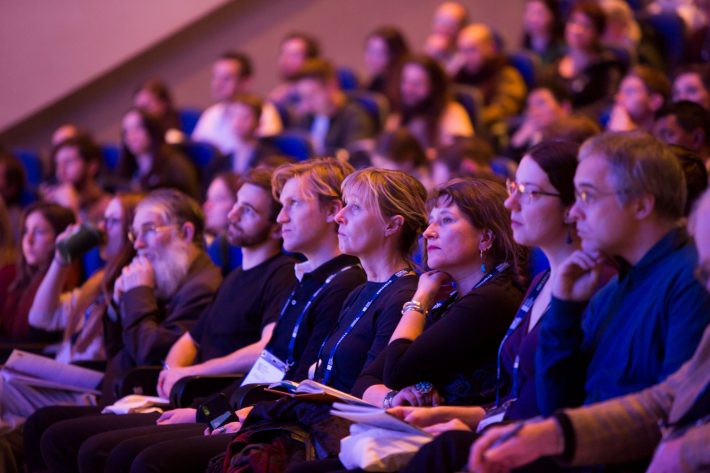Thematic Sessions
We are now pleased to announce the Thematic Sessions taking place at #BES2019

Thematic Sessions aim to create a high profile forum for the discussion of timely, innovative and/or important questions, provide local ‘flavour’ within the programme, and showcase integration with disciplines outside of ecology (including other natural sciences, social sciences, arts and humanities).
Beyond the Hype: How can Citizen Science Deliver Real Environmental Impact?
Isabel Bishop (Earthwatch)
Macarena L. Cárdenas (Earthwatch)
In this session we will explore how citizen science can lead to environmental impact, both through dissemination of the results to practice and policy and through participant behaviour change. Collectively we will discuss and identify how projects can be set up to be most impactful.
Resilience without borders: how different ecological disciplines measure and define resilience?
Pol Capdevila (Oxford University)
Iain Stott (Lincoln University)
This session will take the audience on a journey of resilience, and diverse approaches to its study across different ecological disciplines and natural study systems. Through talks led by outstanding speakers, the session will promote discussions on future challenges in unifying resilience concepts to best inform management of natural systems.
Historical Ecology and the future of Restoration Science
Sarah Cousins (Stockholm University)
James Bullock (Centre for Ecology and Hydrology)
Controversy about the targets and aims of restoration ecology needs to move beyond polarised views and address how history can inform restoration. We will explore the interface between restoration and historical ecology, covering: state-of-the-art historical ecology approaches; long-term patterns of ecosystem degradation; shifting baselines; and applying historical evidence to restoration.
From plant input to soil organic matter: the role of mycorrhizal fungi
François-Xavier Joly (University of Stirling)
Tom Parker (University of Stirling)
The mycorrhizal dominance of a given ecosystem is increasingly viewed as a central mediator of plant-soil interactions. In this session, we aim to bring together ecologists whose research aims, through diverse approaches, at exploring how mycorrhizal fungi control the fate of plant inputs in the soil.
Interdisciplinary model integration to better understand biodiversity change
Simon Kapitza (University of Melbourne)
Laura Jane Graham (University of Southampton)
This session sheds light on the current state of model integration across disciplines at various spatial and temporal scales. The speakers will take stock of available methods – including economic demand, land-use and ecological modelling approaches – and knowledge exchange between these disciplines will be inspired in an interactive panel discussion.
Harnessing the Data Revolution: ecology in a digital age
Daniel Park (Harvard University)
Goia Lyra (Harvard University)
As ecological information is increasingly digitized and shared online, novel approaches that harness these big data are transforming the field. We discuss cutting edge research utilizing digitized ecological data with artificial intelligence, crowdsourcing, remote sensing, and high-throughput computing to address questions of species distributions, phenology, and community assembly.
Embracing the temporal dimension of ecology
Neil Pederson (Harvard University)
Rubén D. Manzanedo (Harvard University)
Temporal variability, particularly over the long-term, is a crucial yet understudied factor in ecological studies. This session focuses on recent research highlighting the advantages of merging paleo- and neo-ecological perspectives, explicitly including the temporal dimension of ecology, and leading to theoretical and methodological development to approach long-standing ecological questions.
Beyond Functional Traits 1.0: the power of plant metabolomics in ecology
Tom Walker (ETH Zurich)
Roberto Salguero-Gomez (Oxford University)
This session presents exciting new research demonstrating the potential for plant metabolomics to revolutionise the fields of functional ecology and biogeography. Talks will draw from phytochemistry, chemical ecology, functional ecology and biogeography to explore how harnessing the information contained in plant metabolism can improve characterisation of plant and ecosystem functioning.

Like what we stand for?
Support our mission and help develop the next generation of ecologists by donating to the British Ecological Society.